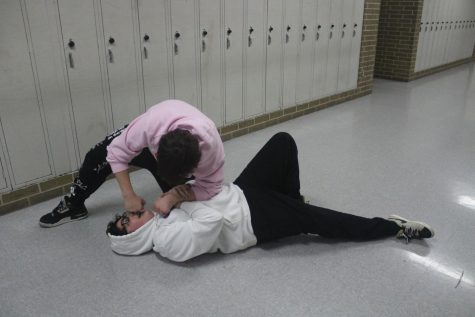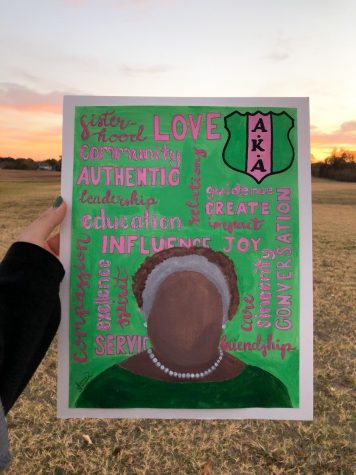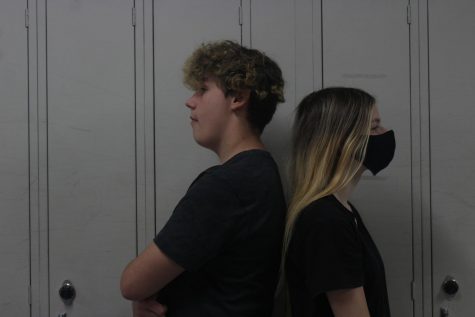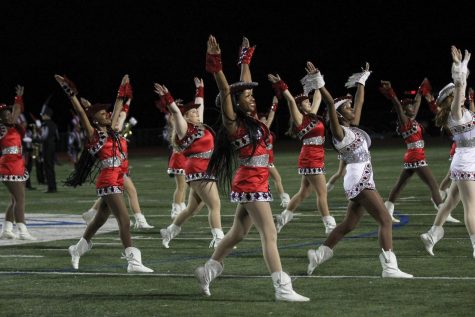Ways to get your voice heard, even if you can’t vote

October 29, 2020
The 2020 election is quickly approaching, but sadly you aren’t old enough to vote. Regretfully you realize your ideas of aging potions and time machines don’t really exist. You think to yourself, “What could I do to get my political voice heard?”
As the November 2020 election approaches, many students find they are too young to vote. Even if you are not eligible to vote, there are many ways to still share your political opinions. There are opportunities for students to formally help support political parties.
“Both parties will always take volunteers for assistance with getting people to the polls and phone banking,” AP US government teacher, Jeff Beck, said. “In normal times, you could knock on doors to make sure people have voted.”
In Texas, anyone at least 16 years old and enrolled in school has the opportunity to help work at the voting polls. There are also opportunities to help drive people to the polls.
“In a more generic way of getting involved, you can be a poll watcher and work at the polls,” Beck said. “You can also help drive elderly folks and people who don’t have transportation to the polls.”
Some students have passed out fliers to their neighbors as a way to get their community involved.
“You can always pass out fliers,” sophomore Marin McCoullough said. “You can advertise it and get a hold of people in your neighborhood that you know would want to be involved.”
There are also ways to directly contact your government official about political issues.
“Some of their emails are public, so you can ask them about your concerns and ask them what they are going to do in the future,” McCoullough said.
There are also many opportunities to protest in the Dallas and Fort Worth areas.
“I know in the 2016 election, students who couldn’t vote yet participated in peaceful protests in the subsequent days of the election,” Beck said. “There’s no age limit on protest or assembly. That is a first amendment right and people have a right to do it, and they do.”
Social media, such as Instagram and Twitter, are other platforms to share your opinions on.
“Social media, especially Twitter, is another way to express political views,” senior Grant Goodyear said. “I share my views on various political issues through Twitter.”
Social media gives students new advantages in sharing their voices. It also gives students more resources to form political opinions.
“Students can participate in politics a lot more than they used to because of social media,” Beck said. “They are confronted with, see things, interact with people, and have news sources that they wouldn’t have access to a couple of years ago.”
Martin offers students a chance to discuss politics in the Young Americans Political Awareness (YAPA) club. YAPA sets up an in-school environment for students to share their political views.
“YAPA allows everyone in attendance to share their views on various issues and debate and discuss with others in a peaceful manner,” Goodyear said. “Everyone is encouraged to share their views at YAPA and the officers do their best to remain neutral or play devil’s advocate in order to keep the environment of the room as balanced as possible.”
It’s sometimes hard for students to share their political opinions because of their lack of information or the feeling of unsafety due to their differing beliefs compared to others.
“People find it hard to share their political opinions for multiple reasons,” Goodyear said. “One of them is lack of information. Many people don’t take the time to learn about politics and therefore don’t have an informed opinion on anything. Others fear being ridiculed by those who disagree with them for sharing their opinion.”
One way to feel more confident in sharing your views is to work on finding your own information. It’s helpful to first look at the big picture of what you want to get done.
“You can find information for yourself and decide what your political views are,” McCullough said. “You need to decide what you want to get accomplished in your community and in your country, and look for potential people who support what you want.”
Another suggestion is to have more political education in school. This allows students to get more essential information to help them feel more confident in sharing their opinions.
“There should be more emphasis on voter education, especially for younger people,” Goodyear said. “If people aren’t informed, they most likely won’t have any political opinions to share.”
As the election continues to approach quickly, it’s important to share your political opinions, because you can still make a difference, even without the ability to vote.
“You can make the world a better place,” McCullough said. “Sharing your opinion allows you to take a step closer to getting the things done that you want to get done.”






Mallory Menard • Nov 6, 2020 at 8:27 am
I love it! This is such a good piece that I know a lot of high school students can use to their advantage. Great work!
ally little • Nov 6, 2020 at 7:20 am
I love this story. It’s inspiring to know that even as someone who can’t vote there are ways to still speak out for what I believe in. you did an amazing job!